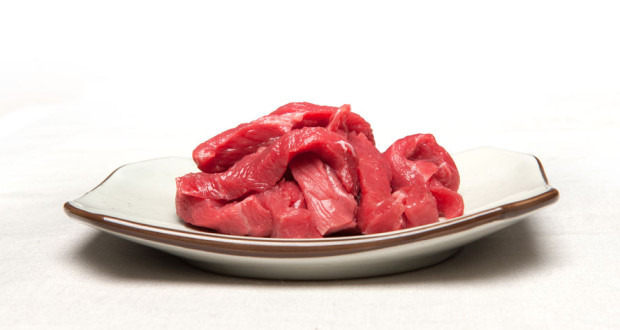It’s a well known fact that Americans like to eat meat. However, the exact amount of meat we consume might still come as a surprise. Americans ate an average of 71.2 pounds of red meat products in 2012, including such favorites as beef, lamb and pork. Given our love of meat, numerous studies have analyzed the impact that these foods have on human health. Some of these efforts have unearthed evidence that might cause you to rethink your diet.
Harvard Weighs In
In March 2012, a study regarding red meat was released by the Harvard School of Public Health (HSPH). For those who enjoy hamburgers, beef and similar fare, the news was not good; the study reported that people who frequently ate red meat faced a much greater threat of succumbing to serious health issues.
The Harvard team published their work in the April 9th, 2012 issue of the journal Archives of Internal Medicine (since renamed JAMA Internal Medicine). For their report, the authors examined participants in two long-term research projects, known as the Health Professionals Follow-up Study and the Nurses’ Health Study (NHS). As their names indicate, the former tracks the wellbeing of men working in the healthcare industry, while the latter focuses solely on female nurses.
Casting a Wide Net
Thanks to these two sources, the authors were able to review the medical histories of an impressive number of people; the Health Professionals study yielded data on nearly 38,000 men, whereas the NHS provided the team with the health records of almost 84,000 nurses. Upon reviewing this information, the authors determined that roughly 24,000 participants died from various causes. Of this figure, cardiovascular disease (CVD) was responsible for 5,910 deaths, while cancer claimed 9,464 lives.
The life spans of these health care workers was largely determined by their diet. By eating just one serving of unprocessed red meat per day, the study noted that the subjects’ mortality risk rose by 13 percent. To put this in proper perspective, this amount of food is roughly equal in size to a deck of cards. Processed red meat was even worse for the participants’ health; the likelihood of an early death increased by 20 percent with a single daily serving of such foods.
When these figures were further broken down by cause of death, unprocessed red meat increased the risk of cardiovascular death by 18 percent and cancer mortality by 10 percent. For processed meat, these mortality rates stood at 21 and 16 percent, respectively. When calculating this information, the researchers made sure to take several important factors into consideration, such as the subjects’ body mass indexes, exercise habits and age. In addition, family history of common cancers and heart disease was also included in the study’s analysis.
Numerous ingredients found in red meat may explain the researchers’ conclusions. Previous studies have connected sodium, saturated fat, nitrites and cooking-related carcinogens to major long-term health problems, such as cardiovascular disease and cancer.
Alternative Protein Sources
Fortunately, the study noted that other protein-rich foods are much safer for human health. Replacing a serving of red meat with fish, for example, was associated with a 7 percent lower mortality risk. For single servings of nuts, poultry and grains, the respective reductions were 19, 14 and 14 percent. Legumes and low-fat dairy products were also beneficial in this regard; in lieu of a serving of red meat, both options were linked to a 10 percent reduced likelihood of a premature death.
In keeping with its other findings, the study argued that a healthier diet would have allowed many participants to live longer lives. Had every man in the Health Professionals study limited their daily intake of red meat to under half a serving, 9.3% of deaths recorded during the report’s follow-up period would have been avoided. Likewise, this dietary guideline would have prevented 7.6% of female deaths documented by the Nurses’ Health Study.
The authors of this research contend that swapping red meat for other protein sources could help lengthen your lifespan. “This study provides clear evidence that regular consumption of red meat, especially processed meat, contributes substantially to premature death,” said Frank Hu, the study’s senior author. “On the other hand, choosing more healthful sources of protein in place of red meat can confer significant health benefits by reducing chronic disease morbidity and mortality.”
 Natural Knowledge 24/7 Educate yourself with nutrition, health and fitness knowledge.
Natural Knowledge 24/7 Educate yourself with nutrition, health and fitness knowledge.






